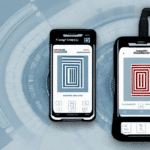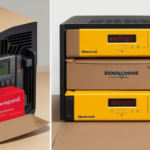Symbol LS2208 by Zebra vs. Honeywell Xenon 1900g: Comprehensive Barcode Scanner Comparison
Barcode scanning technology has significantly advanced, becoming essential for businesses across various industries to manage inventory, track shipments, and expedite the checkout process. Two leading barcode scanners in the market are the Symbol LS2208 by Zebra and the Honeywell Xenon 1900g. This article provides an in-depth comparison of these devices to help you make an informed decision tailored to your business needs.
The Role of Barcode Scanners in Modern Industries
Barcode scanners play a crucial role in industries such as retail, healthcare, logistics, manufacturing, and more by automating data collection, minimizing human error, and enhancing operational efficiency.
- Retail: Manage inventory, streamline checkout processes, and ensure accurate pricing.
- Healthcare: Track patient information and medication to improve patient care and safety.
- Logistics and Manufacturing: Monitor shipments and inventory levels to optimize supply chain operations.
- Food Industry: Ensure food safety and traceability by tracking product origins, supply chain journey, and expiration dates.
- Libraries: Manage book inventories and track borrowing and returning activities efficiently.
According to a Forbes report, businesses that implement barcode scanning technology can reduce inventory discrepancies by up to 50%, highlighting its significance in operational accuracy and efficiency.
Overview of Symbol LS2208 and Honeywell Xenon 1900g
The Symbol LS2208 by Zebra and the Honeywell Xenon 1900g are both handheld barcode scanners renowned for their reliability and performance across various industries.
The Symbol LS2208 has been a market staple for over a decade, appreciated for its affordability, durability, and user-friendly design. In contrast, the Honeywell Xenon 1900g is a newer model offering advanced scanning capabilities and enhanced ergonomics, catering to businesses with more demanding scanning requirements.
Design and Build Quality
When evaluating design and build quality, the two scanners exhibit notable differences:
- Symbol LS2208:
- Rugged and lightweight with an ergonomic design for prolonged use.
- Single-line scan pattern with a scan rate of 100 scans per second.
- Durable construction capable of withstanding drops from up to 5 feet.
- IP30 rating for protection against dust.
- Honeywell Xenon 1900g:
- Larger and heavier with a two-dimensional scan pattern for both 1D and 2D barcodes.
- Faster scan rate of 1900 scans per second.
- Advanced image sensor capable of reading barcodes from any angle.
- More rugged with a drop resistance of up to 6 feet and an IP41 rating for dust and water resistance.
The enhanced durability and advanced scanning features of the Honeywell Xenon 1900g make it suitable for harsher environments, whereas the Symbol LS2208 is ideal for environments where extreme ruggedness is not a primary concern.
Scanning Performance
Scanning performance is a critical factor in choosing the right barcode scanner:
- Symbol LS2208:
- Effective for standard 1D barcodes with a scan range of up to 17 inches.
- May struggle with damaged or poorly printed barcodes.
- Single-line scan pattern offers faster throughput for large volumes of standard scans.
- Honeywell Xenon 1900g:
- Advanced image sensor enables scanning from mobile devices, screens, and damaged barcodes.
- Extended scan range of up to 28 inches.
- Two-dimensional scan pattern enhances versatility and accuracy.
According to a Honeywell white paper, the Xenon series scanners improve scanning speed by up to 30%, significantly enhancing operational efficiency.
Additionally, a Business Insider analysis indicates that modern scanners like the Xenon 1900g are increasingly capable of handling complex scanning environments, including omni-directional scanning and high-density barcode labels.
Ergonomics and Ease of Use
User experience is paramount for prolonged use and minimizing fatigue:
- Symbol LS2208:
- Simple, one-button design for ease of use.
- Lightweight and comfortable for extended use.
- Durable, making it suitable for high-traffic retail environments.
- Honeywell Xenon 1900g:
- More complex button layout with a flexible stand for hands-free operation.
- Adjustable scan head for scanning at various angles.
- Includes Bluetooth connectivity for wireless operation.
- Higher resolution scanner for greater accuracy in scanning smaller barcodes.
The ergonomic design of the Honeywell Xenon 1900g caters to environments requiring frequent and varied scanning, while the simplicity of the Symbol LS2208 benefits settings where ease of training and use are critical.
Software Compatibility and Customization
Both scanners offer robust software compatibility, but they differ in customization capabilities:
- Symbol LS2208:
- Comes with a free Software Development Kit (SDK) for creating customized applications.
- Compatible with a wide range of retail and inventory management software.
- Honeywell Xenon 1900g:
- Offers advanced customization options, including additional scan engines and adjustable scanning settings.
- Supports integration with enterprise-level inventory and asset tracking systems.
These features make the Honeywell Xenon 1900g more suitable for businesses requiring tailored scanning solutions, whereas the Symbol LS2208 serves well for standard applications with minimal customization needs.
Pricing and Value for Money
Cost is a significant factor when choosing between these two scanners:
- Symbol LS2208: Approximately $100
- Honeywell Xenon 1900g: Approximately $350
While the Honeywell Xenon 1900g is more expensive, its advanced features and durability may justify the higher cost for businesses with intensive scanning requirements. The Symbol LS2208 offers a cost-effective solution for businesses with basic scanning needs.
Pros and Cons
Symbol LS2208
- Pros:
- Affordable
- Durable and reliable
- Easy to use
- Cons:
- Limited scanning capabilities
- Struggles with damaged or non-standard barcodes
Honeywell Xenon 1900g
- Pros:
- Advanced scanning capabilities
- Improved ergonomics
- Supports wireless connectivity
- Higher durability with IP41 rating
- Cons:
- Higher cost
- Complex button layout may require training
User Reviews and Ratings
Both scanners are well-received by users:
- Symbol LS2208: Appreciated for its affordability, ease of use, and reliability in everyday scanning tasks.
- Honeywell Xenon 1900g: Praised for its superior scanning accuracy, advanced features, and ergonomic design, though some users note the higher cost and the complexity of the button layout as potential drawbacks.
According to Capterra reviews, the Symbol LS2208 holds an average rating of 4.5 out of 5 stars, while the Honeywell Xenon 1900g averages around 4.7 out of 5 stars, reflecting high user satisfaction.
Choosing the Right Barcode Scanner for Your Business
The optimal barcode scanner depends on your business's specific needs:
- Symbol LS2208: Ideal for small to medium-sized businesses with standard scanning requirements and tight budgets.
- Honeywell Xenon 1900g: Suitable for larger enterprises requiring advanced scanning capabilities, higher durability, and greater customization.
Consider factors such as scanning volume, barcode types, environment, and budget to determine which scanner aligns best with your operational demands.
Future Advancements in Barcode Scanning Technology
Barcode scanning technology continues to evolve, with several promising advancements on the horizon:
- Expansion of 2D Barcodes: Increasing adoption of 2D barcodes for greater data capacity and versatility.
- Integration of AI and Machine Learning: Enhancing scanning accuracy and speed through intelligent data processing.
- Wearable Barcode Scanners: Development of hands-free scanning devices for improved mobility and efficiency.
- Enhanced Connectivity: Advancements in wireless technologies, including Bluetooth and Wi-Fi, for seamless integration with various devices and systems.
These innovations are expected to further streamline operations, enhance data accuracy, and provide greater flexibility in diverse business environments.
Conclusion: The Critical Role of Choosing the Right Barcode Scanner
Selecting the appropriate barcode scanner is pivotal for ensuring efficient operations and accurate data management within your business. Both the Symbol LS2208 and the Honeywell Xenon 1900g offer distinct advantages tailored to different operational needs. By thoroughly assessing your business's specific requirements, budget, and environmental factors, you can choose the scanner that best supports your operational goals and drives business success.






















